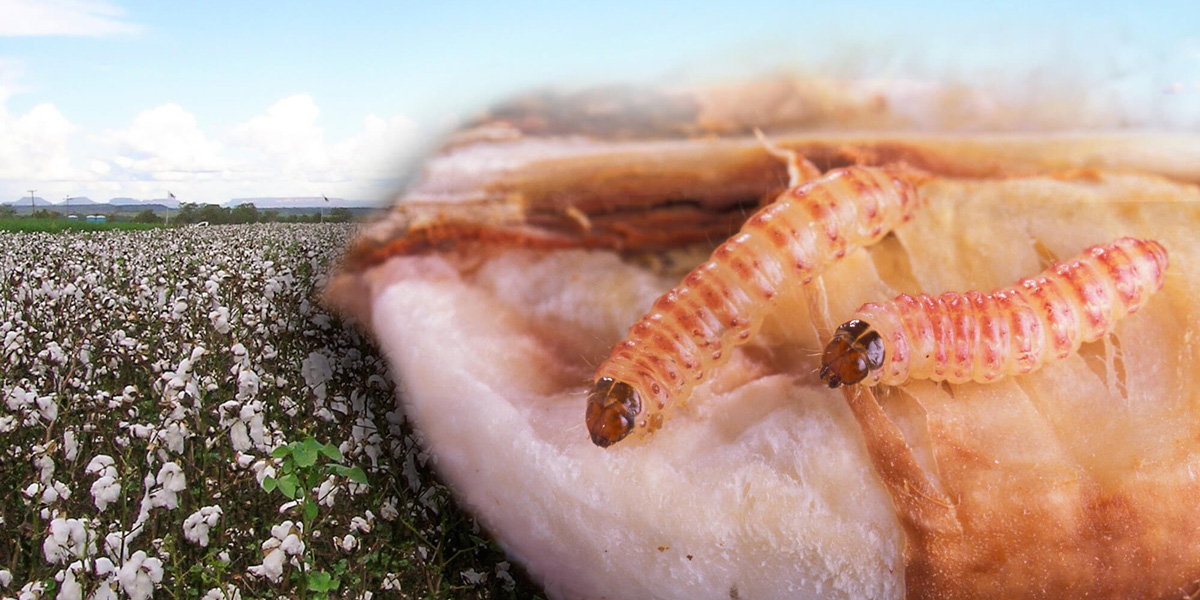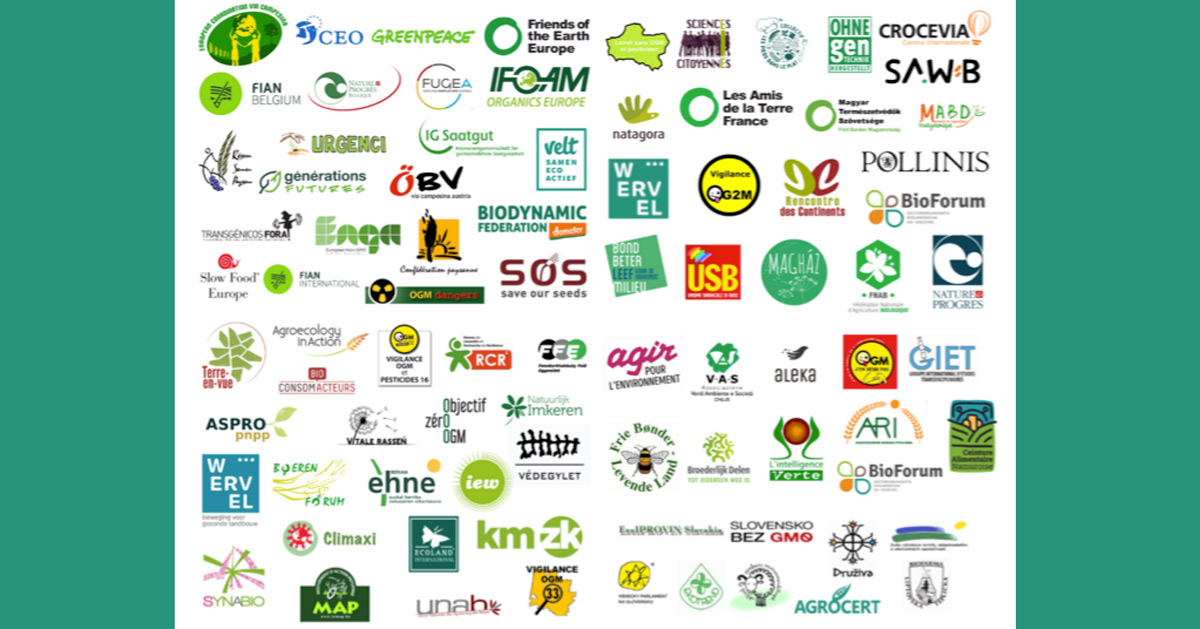| Please scroll to the foot of this email to see news items on the GMO deregulation saga in the UK. Our Lobbywatch and COVID-19 sections will follow in the next Review (no. 522). 
Developments in Argentina regarding GM wheat show that however determined governments are to boost GMOs in agriculture, the inherent weaknesses of the technology undermine their efforts. Although the Argentine government approved it for planting and the Brazilian government gave the nod for its import, the GM wheat is giving poor yields, around two-thirds of the average for non-GM wheat. 
When Bt cotton was introduced to the market in India, it was not only hailed as a silver bullet in the fight against the key pest affecting cotton production, but promoted by some as a pro-poor technology that would bring substantial benefits to smallholders. But the authors of a new scientific paper present evidence to suggest that Bt cotton can be better understood as a neoliberal technology that has led to a systematic dispossession of the very people it is claimed to help – resource-poor farming households. 
Fish genetically engineered to glow in the dark have escaped from fish farms in Brazil and are multiplying in creeks in the Atlantic forest, a new study shows. The GM fluorescent fish are designed for aquariums and are trademarked and marketed as Glofish. Biologists worry that the GM fish could threaten the local fauna in one of the most biodiverse spots on the planet. "This is serious," ecologist Jean Vitule at the Federal University of Paraná, Curitiba, said. Vitule says the ecological impacts are unpredictable. He worries that fluorescence genes could be introduced into native fish with detrimental effects, perhaps making them more visible to predators. "It’s like a shot in the dark," he says. The escape underlines yet again the inadequacy of GMO regulations around the world. Cultivating genetically modified corn is banned in Mexico, but the country still imports it from the United States. Mexican activists want imports of GM corn banned. Agricultural researcher Timothy A. Wise said there are many options for both the US and Mexico if the import of all GM corn into Mexico is prohibited. “The US could still sell corn for feed to Mexico,” he said. “It would just need to be non-GM corn. And US farmers are perfectly ready and willing to grow non-GM corn for a market as big as Mexico’s.” A new scientific publication in the journal Nature shows that the occurrence of mutations (DNA damage) in plant genomes is not random and that certain areas of the genome are protected from mutations. The study also found that the occurrence and frequency of mutations in populations does not only depend on the evolutionary mechanism of random mutation and natural selection as it has traditionally been understood. It’s possible to draw the conclusion from the study that evolution doesn’t just happen through chance, but seems to be driven by a more intelligent mechanism. In experiments with zebrafish, researchers have for the first time shown that unintended effects of CRISPR/Cas applications are inherited in subsequent generations. The researchers also found unusual patterns of inheritance. They conclude that the effects of CRISPR/Cas applications on subsequent generations need to be examined in much greater detail. The findings are relevant for the planned marketing of GM laying hens. GMWatch reported on this study while it was still in pre-print format, including the implications for gene editing in plants. 
The EU has so far not funded any EU research projects that would specifically address the risks and detection methods for new genetic engineering techniques, like gene editing. Thirty-one MEPs from five political groups in the European Parliament have called on the EU Commission to fund such research projects. So far, the EU has mainly funded the development of new genetic engineering, as well as public relations work in favour of its use in agriculture. 
Along with more than 80 national, European and international organisations, European Coordination Via Campesina (ECVC) has demanded in an open letter that the European Commission suspend its initiative to reform EU legislation on GMOs until the Court of Justice of the European Union (CJEU) publishes its clarifications concerning the status of new GM techniques in EU law, as requested by the French Council of State in November 2021. The European Community of Consumer Co-operatives, which has 30 million consumer-members, wants gene-edited products to continue to be regulated as GMOs. It states that new GM techniques (also called new genomic techniques or NGTs) "cause unexpected effects on the DNA. As today NGTs applications are constantly increasing, we believe that NGTs products should be examined with the same EU authorization procedures [as] for GMOs." GMO-free agriculture in Germany and Europe has been a success story. A number of European companies, including Aldi, Lidl Germany, Rewe and Penny, voted in favour of a resolution in 2021 stating that new genetic engineering should be regulated and labelled as genetic engineering. But a few, such as Edeka, Kaufland and Metro, are being evasive. Dirk Zimmermann, genetic engineering expert at Greenpeace, says their passivity is supporting the possible deregulation of new genetic engineering. In 2021, thousands of US growers reported to the US EPA that dicamba sprayed by other farmers damaged crops in their fields, writes Bart Elmore, author of the book, Seed Money: Monsanto’s Past and Our Food Future. Affected plants include sycamore, oak and elm trees; azaleas, black-eyed susans and roses; garden tomatoes, peppers and peas. Now, farmers are seeing weeds resistant to dicamba and other herbicides that are recommended for use with a new generation of GM seeds. Seed companies like Bayer say one solution is for farmers to buy seeds that can tolerate a wider array of weedkillers. Bayer has sought approval for seeds that make crops resistant to five different types of herbicides. For farmers, this will mean greater reliance on agrochemicals and higher costs. Today, US farmers use more than twice as much herbicide to grow soybeans as they did before GM Roundup Ready crops were introduced. Elmore writes, "I see dicamba drift as a symptom of a larger petrochemical dependency that threatens the viability of the US food system." In an excerpt from his new book, British farmer James Rebanks explores “the devastation industrialized agriculture has wrought on our landscapes and foodscapes” and argues that “the global challenge of how we live sustainably on this planet is really a local challenge". He writes that during a trip to the US, all the American farmers he met told him the same thing: "America had chosen industrial farming and abandoned its small family farms, and this was the result — a landscape and a community that were falling apart. They showed us fields of oilseed rape that were full of weeds because they were now resistant to the pesticides that had been overused. They spoke of mountains ripped open for minerals, and rivers polluted, and farming people leaving the land or holding on in hidden poverty. And the worse it all got, the more people seemed to gravitate to charlatans with their grand promises and ready-made scapegoats to focus all their anger on. I felt I had landed in a future that didn’t work." One in three people across America have detectable levels of 2,4-D, a toxic herbicide linked to cancers, birth defects and hormonal imbalances, a major nationwide survey has found. The amount of 2,4-D applied in agriculture increased 67% between 2012 and 2020, but its use will almost certainly grow sharply over the next decade due to the widespread use of the controversial weedkiller Enlist Duo – a relatively newly approved combo (2,4-D and glyphosate) for GM crops. 
Glyphosate and Roundup lead to changes in gene regulatory microRNAs (miRNAs or miRs) linked with cancer, newly published data show. The analysis, of a type known as small RNA profiling, was conducted in liver tissue from rats exposed to glyphosate and Roundup MON 52276, an EU-approved formulation, over 90 days. In the new results, Roundup MON 52276 was found to reduce the levels of miR-22 and miR-17, whereas glyphosate decreased the level of miR-30 and increased the amount of miR-10. These changes in miRNAs are important because they are known to alter the expression of crucial cell growth regulator genes, which can lead to the development of cancer. The new data confirm and build on previously reported findings. 
While a strong scientific consensus now exists on the need to move away from an agriculture doused with pesticides, regulatory agencies continue to allow the marketing of new “plant protection” products — and the regulation of glyphosate highlights this failure, according to an article in Le Monde by science correspondent Stéphane Foucart. Foucart criticises the European Food Safety Authority (EFSA) for publishing in a non-transparent manner the critical comments it received on the favourable preliminary expert report on glyphosate concocted by four Member States. 
The results of the most comprehensive glyphosate testing of food products ever conducted in the US have been released by The Detox Project, in a report that shows the true levels of weedkiller contamination in essential foods sold by some of the top grocery stores in the country. The world’s most used weedkiller, glyphosate, was discovered in a wide range of essential food products including bread, pulses and grains from top grocery stores such as Hy-Vee, Whole Foods Market, Amazon, Walmart and Target. Indigenous villagers in rural areas of Brazil are being sprayed with agrochemicals in attacks arranged by GM soy producers. The cases are so frequent and systematic in Mato Grosso do Sul that they have been defined as "chemical aggressions" by a lawyer from the Federal Public Prosecutor's Office who is leading several complaints. The leader of the Guyra Kambi'y settlement in Douradina says, "It's like a war. They started with gunshots to intimidate us and tractors pushing our huts. Then they started attacking us with poison, which is a weapon that kills little by little. They want to throw us out, but we will resist." Parallel cases are occurring in Paraguay. A Colombian court has ruled that the government cannot conduct anti-drug fumigation without the consent of rural communities, in a blow to plans to resume an aerial assault on coca cultivation. The Constitutional Court ruled in favour of rural, black and indigenous communities who sought judicial relief against government plans to renew spraying with the controversial glyphosate herbicide. They claim the chemical causes disease, destroys traditional crops and pollutes the water. Farm workers in Europe are not protected from pesticides. Their exposure has been linked to serious and deadly illnesses, including Parkinson’s disease and blood cancers. Recommended equipment, expensive, untested and rarely worn as it is, does not provide effective protection. Without this presumed protection, dangerous pesticides would be banned. French whistleblowing scientists have raised the alarm for more than a decade – but they remain unheard. Science has shown that pesticide exposure is linked to serious and deadly illnesses for farm workers, including Parkinson’s disease and blood cancers. Victims across Europe are struggling for recognition and compensation, as occupational disease remains a blind spot for authorities. As of now, only France and Italy officially recognise Parkinson’s disease to be linked to farm work. The condition is not on the list of occupational diseases upon which the European Union recommends Member States to act. The official EU agency for health and safety at work is not able to collect and share basic statistics on health at work. Glyphosate-based herbicide has been found to select for antibiotic resistance genes in bacterioplankton (the bacterial component of the plankton in water) communities. These selective effects are evident after just a few days, and at glyphosate concentrations that are high but still within short-term (1-4 day) regulatory limits. The results indicate that glyphosate-based herbicide has the potential to cross-select for antibiotic resistance in natural freshwater bacteria in natural streams, lakes, and ponds. There is emerging concern regarding the unintentional and often unrecognized antimicrobial properties of pesticides, including insecticides, herbicides, and fungicides, according to a newly published review. These are known to produce broad ranging, off-target effects on beneficial wildlife, even at seemingly non-toxic low dose exposures. In addition to their direct lethal effects on microbes, they can also impact the gut microbiomes of honeybees, disrupting digestion, immune regulation, and pathogen resistance. The evidence suggests that immediate action is needed by regulatory authorities in amending safety assessments for “non-antimicrobial” pesticides. Ecuador's constitutional court has ruled that the introduction of transgenic seeds and crops into the country for research purposes is unconstitutional, reaffirming the 2008 constitution which declares Ecuador free of GMOs. The Court also mandated that traditional knowledge be included in the definition of "quality seed", and that this definition is not limited to Western scientific knowledge. The ruling is another step towards keeping Ecuador free of transgenic seeds and crops, and towards valuing and strengthening native seeds. The Center for Food Safety needs your help to inspire their next GMO labelling campaign and ensure our right to know what's in our food. The new GMO labelling regulations finalised by the Trump administration's Department of Agriculture (USDA) went into effect on January 1. Instead of informing people about the GMO ingredients in foods, these regulations are designed to help companies hide the GMO content in products. Center for Food Safety is suing USDA to have these irresponsible regulations rescinded, but as that suit goes through the courts, they need all hands on deck to expose the companies hiding GMOs behind QR codes or 800 numbers. Take action! The Philippines Dept of Agriculture has announced that "massive production of Golden Rice seeds and production of Golden Rice" will begin this year in certain provinces. The Stop Golden Rice Network strongly opposes this GM crop. Scientists are developing gene-edited potatoes to lower acrylamide content in crisps and chips/french fries. This is claimed to make it more economical to produce, and safer to consume, addictive junk foods. For why lowering acrylamide content is a nonsensical reason to genetically engineer potatoes, see this. Until it was gobbled up by Bayer in 2018, Monsanto was among the most reviled companies in corporate America, targeted by anti-GMO and seed sovereignty activists, sued by people exposed to its chemicals, and exposed for bullying regulators, battling farmers and betraying science. Monsanto justified its actions, and the regime of toxic agrochemicals, GM seeds and fertilizers, by claiming to “feed the world", a mantra we hear even today. But in Seed Money: Monsanto’s Past and Our Food Future, Bartow J. Elmore reveals another side of the story: The company’s products weren’t designed to feed the world but rather to create more opportunities to sell even more ag inputs. Ironically, even the problems arising from widespread use of its products spawned fresh business opportunities. 
A new scientific publication by authors from Testbiotech finds substantial deficiencies in the risk assessment of GM Bt cowpea approved for cultivation in Nigeria. The GM plants produce an insecticidal Bt toxin meant to protect the plants from the larvae of Maruca vitrata, which feed on the plants and are also known as pod borer. Testbiotech recommends discontinuing the marketing of the plants as well as additional in-depth investigations before planning any releases. The cultivation and consumption of the beans may otherwise harm health and the environment. The growing opposition against a central government proposal on GM foods has intensified, with doctors and former health minister Anbumani Ramadoss opposing the contentious rules, put forward by the Food Safety and Standards Authority of India (FSSAI). As per the proposed draft, FSSAI would be the only authority to decide on manufacture, sale, import and distribution of GM food, bypassing mandatory scrutiny by the Genetic Engineering Appraisal Committee, which currently regulates all GMOs. "The draft regulation, if notified, will make it extremely difficult for consumers to choose GM-free food... It will put many people at the risk of allergies and other problems related to GM foods’ consumption,” Ramadoss wrote to the health minister. In a letter to the FSSAI, more than 160 doctors have appealed to the food regulator to withdraw the regulations and ensure that GM foods do not enter the food chain. Gene drives aim to modify or suppress wild populations of animals or plants by quickly GM traits throughout a population. In a new analysis using fruit flies as a model, scientists identified multiple cascading effects of gene drives, including the potential spread of the gene drive in geographic range or potential hybridization with non-target species. The authors propose a comprehensive approach to understand the susceptibility of an ecosystem to unintended and irreversible harm and recommend that the precautionary principle should be applied. In 1981, the Rodale Institute began a farm-scale trial in Pennsylvania that compares conventional and organic farming. The trial, the longest-running side-by-side comparison of organic and conventional grain cropping systems in North America, has now been running for nearly 40 years. Some years after the start of the trial, they added some GM crops to the "conventional" cropping system. The results show that organic systems:
* Are competitive in yields with conventional systems after a 5-year transition period.
* Produce up to 40% higher yields in times of drought.
* Earn 3-6 times more profits for farmers.
* Leach no toxic chemicals into waterways.
* Use 45% less energy.
* Release 40% fewer carbon emissions. The journalist Colin Todhunter has published a free e-book that sets out some key current trends affecting food and agriculture. It begins by looking at the Gates Foundation’s promotion of a failing model of industrial, GMO chemical-intensive agriculture and the deleterious impacts it has on indigenous farming and farmers, human health, rural communities, agroecological systems and the environment. Alternatives to this model are discussed, focusing on organic agriculture and agroecology. UK GMO DEREGULATION The Westminster government has released the draft text of the "statutory instrument" that will enable ministers to change the law governing releases of GMOs in England, without further Parliamentary debate or oversight. The proposed new law would wipe out existing protections for the environment and public health from the risks posed by GMO trials and other types of experimental plantings. It would remove the current requirement for GMO developers to submit an environmental risk assessment or seek the consent of the Secretary of State before running a GMO field trial. An analysis by A Bigger Conversation suggests that in its haste to deregulate agricultural gene technologies, the UK government is “choosing to get it wrong” by ignoring expertise from all sides. The analysis, carried out by A Bigger Conversation, highlights multiple themes missed by the Department for Environment, Food and Rural Affairs’ (DEFRA) official analysis of responses to its 2021 public consultation on the regulation of genetic technologies. It shows that DEFRA's analysis was inadequate and divisive and failed to take account of public opinion. The House of Lords Secondary Legislation Scrutiny Committee (SLSC) has published a report on the draft statutory instrument that aims to deregulate agricultural gene technologies, issued by farm ministry DEFRA. The SLSC report is a damning condemnation of the scientific, legal and democratic basis of the Westminster government's plans to weaken regulations around GMOs. The report notes that DEFRA fails to set out any scientific or regulatory criteria to assess whether a genetic modification or change in a plant could have occurred naturally or could have been produced through traditional breeding methods. The government intends to exempt such GM plants from the GMO regulations. The Scottish Farmer has published an article laying out the Lords' concerns in simple terms. The chair of the House of Lords SLSC (see above) was interviewed on the BBC's Farming Today programme on the Committee’s concerns about the statutory instrument. He is highly critical of the government's moves to deregulate GMO field trials via secondary legislation – before a definition of the type of GMOs that the government wants to exempt from regulation is even in place. 
Read Beyond GM's analysis of the House of Lords SLSC's criticism of the draft regulation, as well as the statutory instrument – and join their quick and easy e-action to send a message directly to your MP and let them know this amendment should not be passed. Senior ministers in the Welsh and Scottish governments have furiously criticised “cack-handed” plans from the Conservatives to scrap or amend thousands of EU rules. The move – nicknamed the “Brexit freedoms bill” – has also raised alarm from constitutional experts who said it would make it easier for ministers to bulldoze through important parliamentary scrutiny. The areas affected by the proposed bill, which has yet to be published, include climate policy, agricultural rules, food safety, and genetic modification. Seeking to distract us from his own pursuit of freedom during lockdown, this week Boris Johnson announced what he calls a Brexit freedoms bill. Its purpose is to accelerate the removal of EU rules from our legislation and to “cut £1 billion of red tape for UK businesses”. But when politicians like Johnson and Tony Blair inveigh against “red tape”, often they mean the public protections that permit a safe and decent life, writes George Monbiot. GMWatch has published its response to UK farm ministry DEFRA's announcement that new legislation will be put in place "to cut unnecessary red tape" for planting of gene-edited crops. GMWatch says that the government is going against public opinion, which overwhelmingly opposes deregulation, ignores the science on the unintended effects of gene editing, and makes hollow promises of GM "wonder crops" that are highly unlikely to ever perform properly in the field. GMWatch has published its response to the UK Food Standards Agency's (FSA) public consultation on applications for 9 GMOs for food and feed uses. The response "notes that all the risk assessments are based on those of EFSA, which are inadequate to establish safety. On the basis of the information provided and omitted by the GMO developers, these applications should be refused." It criticises the lack of data on the combinatorial effects of stacked-trait GM plants such as those being put forward for approval, even though studies show that these plants may pose more complex and serious risks than single trait GM plants. |